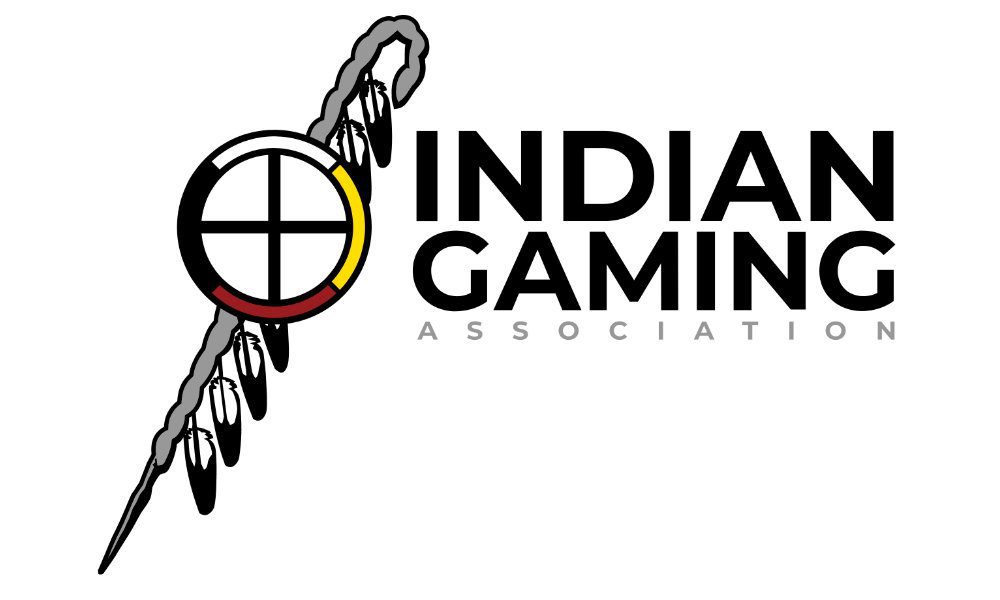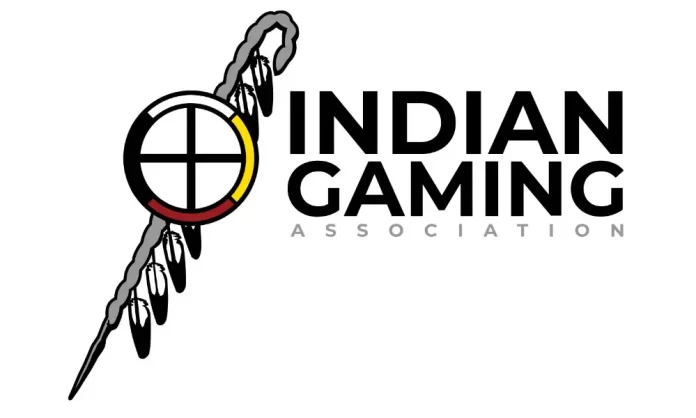Sunday, August 24, 2025 1:28 PM

A webinar of Indian gaming experts touted the historic growth in tribal gaming revenues and contrasted it with what’s happening in commercial gaming and on the Las Vegas. But they see “speed bumps” as the economy continues to slow and threats increase from what tribes consider illegal online gaming.
The Indian Gaming Association’s webinar this past week discussed a report from the National Indian Gaming Commission announcing record-breaking gaming revenues. For fiscal year 2024, tribal casinos earned $43.9 billion, a $2 billion or 6% gain over 2023.
IGA Conference Chair Victor Rocha hosted the webinar with IGA Executive Director Brian Giles. It featured Gene Johnson, vice president of Victor Strategies, and Jim Klas, founder and principal of KlasRobinson Q.E.D.
“Everyone is talking about the death of Las Vegas,” Rocha said. “The numbers are showing that tourism is down and people aren’t going to the Strip. But the locals casinos are doing very well. It seems to me the locals are the new normal and tribal gaming is Las Vegas locals on steroids. That seems to be the case here – you take care of your local customers. But the world is changing and the economic headwinds we’re seeing are going to change the numbers next year.”
The report covered 243 tribes and 532 gaming operations in 29 states, citing “organic growth” for the most part. The growth a year ago was lower at 2.4%, which means double the increase in 2024.
Not all of that was organic, however, according to Johnson. There was a 11.2% increase in the D.C. region that covers Connecticut and Florida. The former has igaming and online sports betting and the latter mobile sports betting.
“You’re starting to see a slowdown in the economy and commercial gaming,” Johnson said. “The topline numbers are good, but the majority of growth is coming from expansion in the commercial industry, whereas the growth in tribal gaming is coming from organic growth among existing casinos, as well as online migration.”
Johnson talked about “a whole lot of speed bumps ahead,” with GDP growth slowing, purchasing power weakening, and consumer confidence cratering.
Tariffs are raising costs for tribal expansions and there’s increasing competition from commercial and other tribal operators, as well as sweepstakes operators and prediction markets.
“All kinds of substitutes for igaming and sports betting are appearing in states that don’t have legal sports betting yet, and these are largely tribal gaming states,” Johnson said.
Giles pointed out that tribes aren’t seeing anything like what’s happening in Las Vegas, where tourism has declined so far this year and occupancy has dipped.
“No they aren’t,” Johnson said, agreeing about the tribes. “Tourism was down 11.3% in Las Vegas in June and Canadian tourism is down the most. The American Gaming Association put out numbers through May that commercial gaming is up 7.1%, but if you look more closely at these numbers, you find there were expansions in Arkansas, Delaware, Illinois, Indiana, Nebraska, New Hampshire, and Virginia. If you take those states out of it, you’re seeing 0.66% to 0.8% growth.”
While commercial gaming revenue rose 7.1%, land-based casinos rose 1.9%, sports betting rose 13%, and igaming rose 25.9% so far this year, Johnson said.
“Whether it’s igaming, sports betting, or online means of gaming, the main thing is that the tribes have an opportunity to compete on a level basis,” Klas added. “They’ve demonstrated for decades that they’re fully capable of competing effectively — putting out superior products and getting superior performance — as long as they have the opportunity to compete in the same way. Even though there’s an impact on brick-and-mortar from online, brick-and-mortar isn’t going anywhere. It’s holding its hold. It’s still going up, with rapid growth from online gaming.”
When it comes to tribes, the Oklahoma City region had a 12.7% increase ahead of Washington, D.C.’s 11.2% increase. The Portland region reported a 3.6% increase, Sacramento 1.4%, Phoenix 1.9%, St. Paul 1.6%, Rapid City 4.2%, and Tulsa, 0.1%.
About 9% of gaming operations reported more than $250 million of GGR in 2024 and their aggregate revenues made up more than half (55%) of the total GGR. In comparison, just over 54% of tribal gaming facilities reported less than $25 million in revenues and this group represents about 5% of the total GGR share.
Looking ahead, Klas, like Johnson, talked about the pressure on consumer spending. He looks at consumer confidence and spending as the two biggest indicators for the future of gaming over six to 12 months.
While tariffs are a concern, it’s more about the uncertainty over tariffs and what’s going to be put in place or retained, Klas said.
“The only thing worse than bad news is uncertainty,” Klas said. “Bad news you can adjust and adapt to. It hurts and you have to make changes, but at least you know what you’re facing. When you don’t know what you’re facing, from a corporate executive to a rank-and-file customer on the casino floor, it’s natural to assume the worst and not the best. If we could get a little more stability in the outlook that would help. I’m not confident that’s going to happen for a variety of reasons. The new normal during this administration is uncertainty over policy. That will have a depressing impact on everybody’s plans from IBM to you and me and our neighbors. I don’t want to cast a doom and gloom scenario. There are headwinds and challenges, and I don’t expect next year’s growth to be as high as this year’s growth. However, I don’t expect it to be lower than 2023. I’m confident it will be a positive number whatever it is.”
Johnson said with concerns over tariffs and people tightening their belts on spending, he doesn’t see a big increase in Las Vegas tourism over the next three to six months. Still, he remains optimistic about tribal gaming.
“I’m cautiously optimistic,” Klas agreed. “The headwinds and challenges are there, but this industry has year after year continued to show it’s flexible and resilient and knows how to survive and continue to find ways to grow.”



